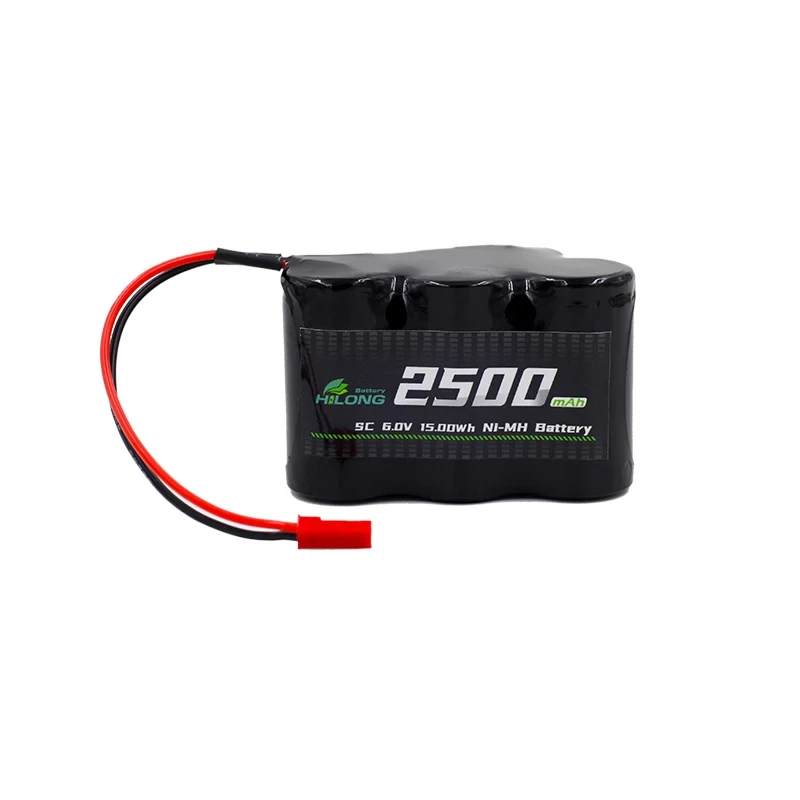When it comes to powering large RC cars, choosing the right rechargeable battery for large RC cars is crucial for optimal performance and longevity. This guide will help you understand the different types of batteries available, their benefits, and how to maintain them for the best results.
Types of Rechargeable Batteries for Large RC Cars
Nickel-Metal Hydride (NiMH) Batteries
Pros: NiMH batteries are robust, affordable, and widely available. They are often bundled with budget RC cars and provide consistent voltage throughout their discharge cycle.
Cons: They have a lower energy density compared to LiPo batteries, resulting in slightly less power and runtime.
Lithium Polymer (LiPo) Batteries
Pros: LiPo batteries are known for their high energy density, lightweight design, and high discharge rates, making them ideal for high-performance RC cars.
Cons: They require careful handling, charging, and storage to avoid potential hazards like swelling or fire.
Lithium Iron Phosphate (LiFe) Batteries
Pros: LiFe batteries offer a balance between NiMH and LiPo batteries, with higher energy density than NiMH and enhanced safety features compared to LiPo.
Cons: They are relatively new and may not be as widely available as other types.
Key Considerations for Choosing a Rechargeable Battery
Capacity (mAh)
The capacity of a battery, measured in milliamp-hours (mAh), determines how long your RC car will run per charge. Higher capacity batteries provide longer run times but are also larger and heavier.
Example: A 5200mAh battery will offer longer run times compared to a 3000mAh battery, making it suitable for extended play sessions.
Voltage (V)
Voltage affects the speed and power of your RC car. Ensure that the battery voltage matches your car's specifications to avoid damaging the electronics.
Example: Most large RC cars use 7.2V or 7.4V batteries, but some high-performance models may require higher voltages.
Discharge Rate (C Rating)
The C rating indicates the maximum continuous discharge rate of the battery. A higher C rating means the battery can deliver more power, which is essential for high-speed or high-torque applications.
Example: A 60C LiPo battery can provide bursts of high power, making it ideal for racing or off-road RC cars.
Handling and Maintenance
Avoid Physical Damage: Do not puncture, drop, or impact the batteries. Physical damage can lead to internal shorts and potential fires.
Keep Away from Metal Objects: Ensure that the battery terminals do not come into contact with metal objects to prevent short circuits.
Temperature Monitoring: Avoid using or charging batteries that are still warm from previous use. Allow them to cool down to room temperature first.
Storage Voltage: For LiPo batteries, store them at around 3.8 to 3.9 volts per cell to maintain their longevity.
Safety Tips for Using Rechargeable Batteries in RC Cars
Using rechargeable batteries in RC cars can significantly enhance performance and runtime. However, it is crucial to follow safety guidelines to prevent accidents and ensure the longevity of your batteries. Here are some essential safety tips for using different types of rechargeable batteries in RC cars:
Read Manufacturer Instructions: Always read and follow the manufacturer's instructions for safe use and charging of the batteries.
Inspect Batteries Regularly: Check for any signs of damage, swelling, or leaks before and after each use. Do not use damaged batteries.
Use Appropriate Chargers: Ensure you use chargers that are compatible with your battery type. Incorrect chargers can cause overcharging or undercharging, leading to potential hazards.
By following these safety tips, you can enjoy the benefits of using rechargeable batteries in your RC cars while minimizing the risks associated with their use. Always prioritize safety and handle batteries with care to ensure a safe and enjoyable RC experience.
Conclusion
Choosing the right rechargeable battery for large RC cars is essential for maximizing performance and ensuring safety. Whether you opt for NiMH, LiPo, or LiFe batteries, understanding their characteristics and proper maintenance practices will help you get the most out of your RC car. Always follow manufacturer guidelines and consult with experts if you have any questions about battery compatibility and care.



.jpg)

